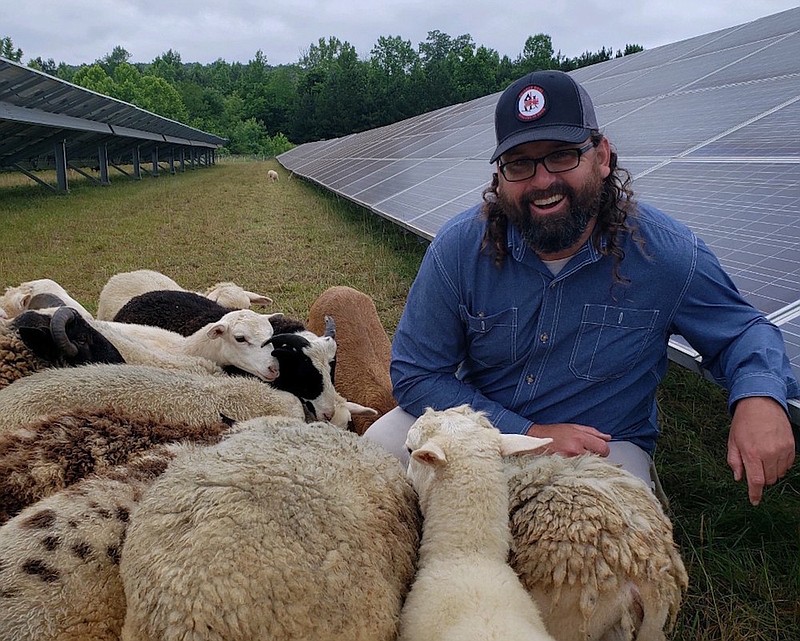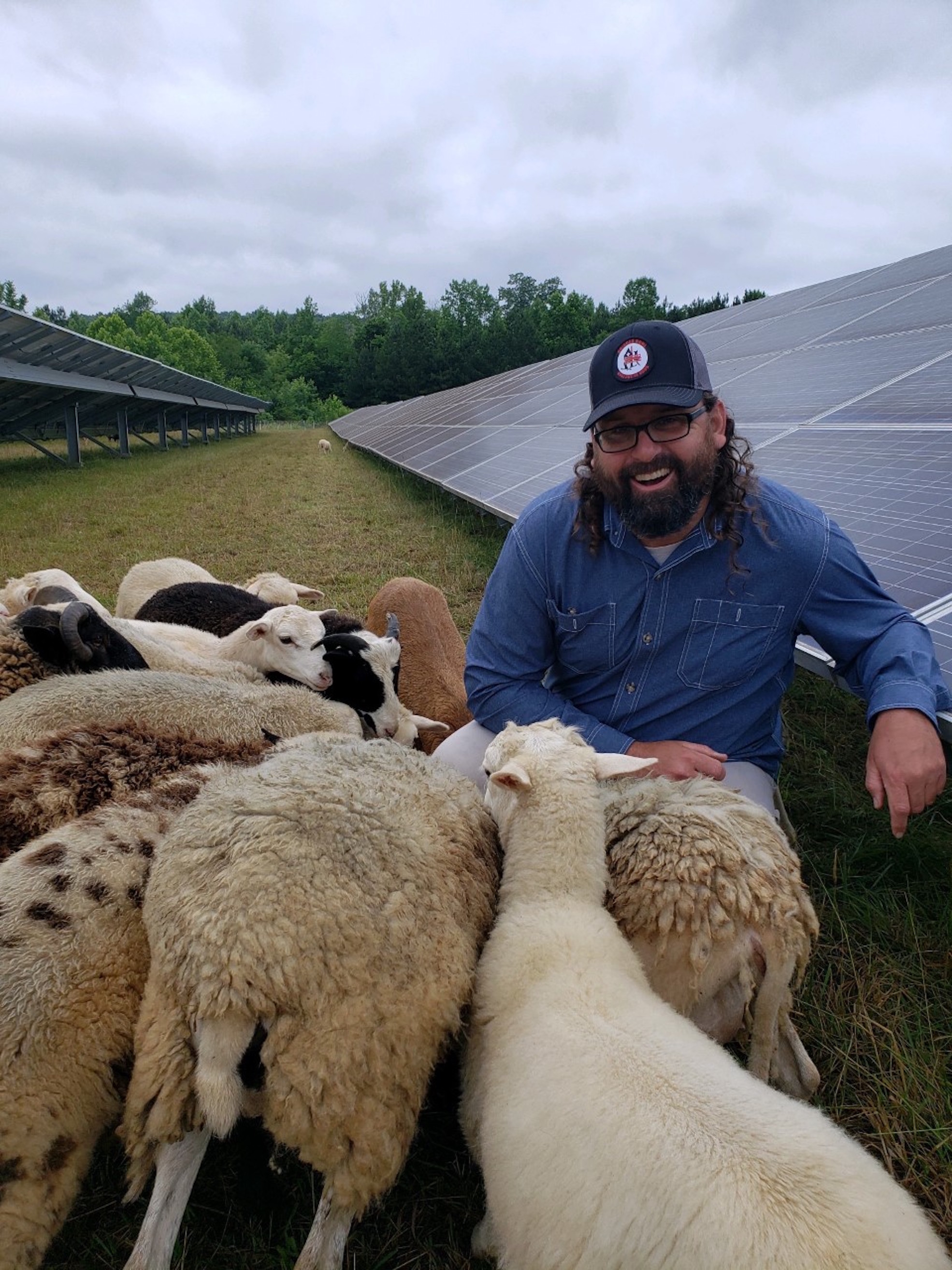In the shadow of one of the South's most high-tech auto production plants, a centuries-old, tried-and-true method of caring for the land is underway in Chattanooga.
Since May, a 50-acre tract holding a solar farm that was built to help power Volkswagen's nearby assembly plant has housed a herd of sheep which keep the grasses trimmed and the soil environmentally healthy.
"They make sure everything is taken care of," said Tyler Menne, who manages the solar farm's landscaping for owner Silicon Ranch Corp. "They get in the nooks and crannies."
Nashville-based Silicon Ranch, one of the largest independent solar power producers in the country, has about 6,000 of 11,000 acres beneath its solar panels under what it terms "regenerative management."
Chris Ann Lunghino, the company's director of policy and communications, said the idea was launched about two years ago at a Blakely, Georgia, location and it has expanded.
"We're doing it at a number of solar farms mainly in the Southeast, though we've got a few in Colorado," she said. "We intend to do it at all of them where feasible."
Lunghino said soil erosion is a big issue for solar farms.
"Having good ground cover is important to a well functioning solar farm," she said.
That's where the sheep come in. They graze on the grasses and at the same time fertilize the soil, Lunghino said.
At the Volkswagen solar farm, the site is divided into four pastures. The 50 to 55 sheep are moved around so pastures aren't overused and grasses have time to grow back, Lunghino said.
Plants grow back more quickly and the soil is healthier than if mowing is utilized, she said.
Menne said his landscape company had taken care of the mowing at the VW solar farm since 2012. The contract was coming up for renewal and he wasn't planning on taking it on again, he said.
"Labor was becoming an issue," Menne said.
He said he thought about using cattle at the site, but the company told him sheep were OK.
"They show up every day," Menne said. "They'll not call in sick. If it's 95 degrees, they're working."
To keep away predators of the sheep, he has brought in a couple of 12-year-old rescued donkeys. Menne said the donkeys have acute hearing and they let the sheep know if there's potential trouble.
"We've got electric fencing to keep them in certain sections," he said.
Lunghino said guard dogs also are used at some properties.
The solar farm was built near the VW plant in 2013. At the time, the $25 million facility was the largest at any U.S. auto plant and the biggest array in Tennessee.
The solar farm helped the factory to achieve its Leadership in Energy and Environmental Design Platinum status. The plant at time was the only one worldwide to hold such a badge.
Contact Mike Pare at mpare@timesfreepress.com or 423-757-6318.

